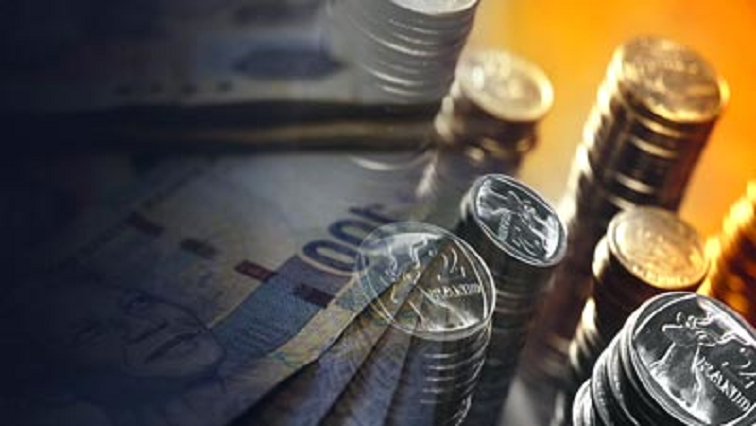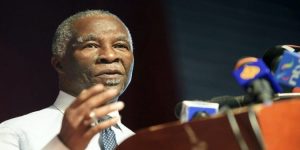Chief Economist at Econometrix Dr Azar Jammine says the State of the Nation Address (SONA) is not just a political speech but one heavily skewed to economic matters that have the potential to affect people’s lives.
But year in and year out, the living conditions of many millions of South Africans don’t seem to change that much.
And in some cases, it gets worse, as unemployment, poverty and inequality continue to prevail. There’s a worry that South Africans are becoming weary around promises made every year, many of which come to nought.
When President Cyril Ramaphosa delivered his first SONA in 2018, there was excitement about the country’s economic prospects, with the feeling described as Ramaphoria at the time.
Jammine says, “Now in every one of the State of the Nation Addresses since then, a lot of these promises have been kind of reiterated but people have become extremely disillusioned that they are not seeing those promises being implemented and they’re being translated into properly implemented forces of action that would have seen a turnaround in the economy.”
The Energy sector was a key priority area in President Ramaphosa’s SONA last year, in which he also announced his decision to create the position of a Minister of Electricity to help resolve the country’s load-shedding problems.
SONA 2024 | It’s all systems for SONA:
Expectations
Analysts say he’ll need to use this year’s SONA to account for the progress that’s been made so far.
Inkunzi Wealth Executive Director, Owen Nkomo says, “We want to see if Eskom is now turning the corner or when the president expects Eskom to turn the corner. Obviously, with Eskom, the numbers will tell the truth, you can’t try and create things that are not there, so we’ll be expecting an update on what’s going at Eskom, in particular with the government support to Eskom’s balance sheet.”
Black business says 30 years into the country’s democracy, it’s a significant time for there to be what it calls an ‘economic reset’ on the part of the ruling party, referring to the economic disparities that still prevail in the country along racial lines, adding that the ruling party needs to be honest about its failures in this regard and do things differently.
Black Business Council CEO, Kganki Matabane says, “When you look at the ownership of the economy and in the running of the economy, you’ll know the employment equity commission releases a report every year, almost 70% of the CEOs of the JSE listed companies are white males. And this is 30 years into democracy. When you look at ownership of the economy, black people still own less than 5% of the economy, I don’t even want to talk about the ownership of the land and everything else.”
The country’s poor rail and port networks, specifically Transnet, continue to make headline news and this is an area many will hope the President speaks to directly with possible interventions to improve the situation.
This issue was top of the agenda for investors attending this year’s Mining Indaba.
Nkomo adds, “About 70% of the people we spoke to, whether it’s local or offshore business, the guys are saying we’re extremely worried about Transnet; we’re extremely worried about the state of the infrastructure. Export and import and we have seen our neighbour Mozambique invest over 700 million dollars to improve their facilities because people are now looking at Mozambique as an alternative route for sending goods into the rest of the continent, so Transnet certainly does need to get the help that it requires to turn it around.”
To resolve the country’s energy and logistics issues, the government has had to court the private sector to tap into its investment capital and know-how.
SONA 2024 | President Ramaphosa to deliver SONA:
Private sector
Some argue that despite the privatisation word being considered profanity among some in the ruling party and the tripartite alliance, this is probably the best shot the country has of improving its economic lot.
Chief Economist at Econometrix Dr Azar Jammine says, “The private sector has just carried on regardless and this has prevented the economy from collapsing completely and one would hope to see a commitment on the part of the president to continue working with the private sector to try and incorporate.”.
Meanwhile, black business says the government needs to be more focused on supporting the SME sector, given its job-creating potential.
Black Business Council CEO, Kganki Matabane, “So we’ve raised the issues of access to funding, access to the markets because if you don’t have those two, you can have all these other enterprise development programmes where they teach you how to type an excel spreadsheet, but if you don’t have access to funding and access to the market, it doesn’t matter and that should be done by utilising government institutions, the IDCS of this world.”
While the SONA is eagerly anticipated yet again, it remains to be seen whether it will materialise into action that affects the lives of ordinary South Africans in a material way.






